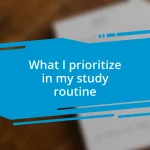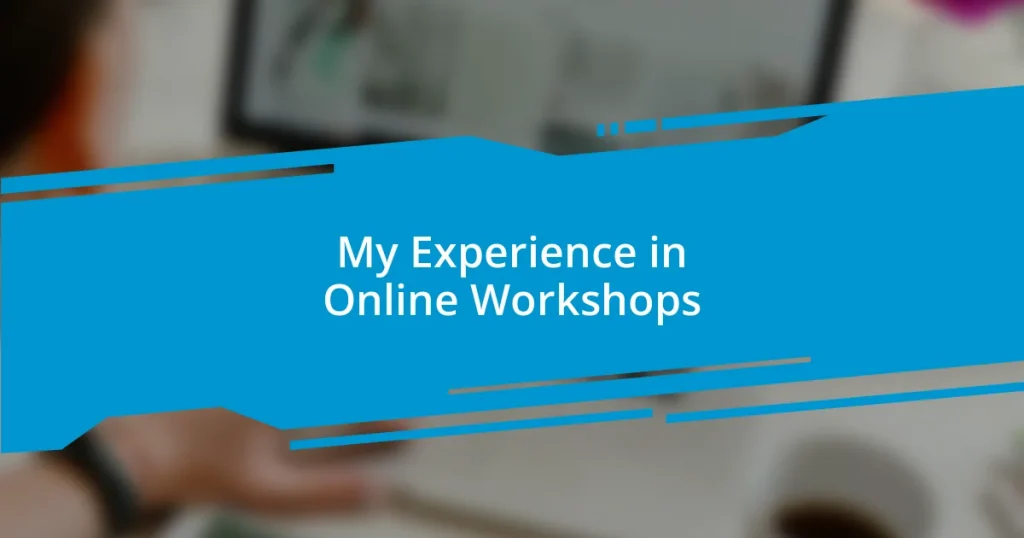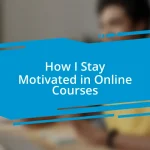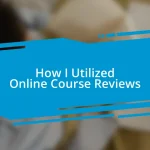Key takeaways:
- Online workshops foster genuine connections through interactive features, combining flexibility with rich learning experiences.
- Preparation, such as setting goals and gathering materials, enhances engagement and effectiveness in workshops.
- Following up after workshops, through reflection and collaboration, solidifies learning and fosters deeper connections with peers.
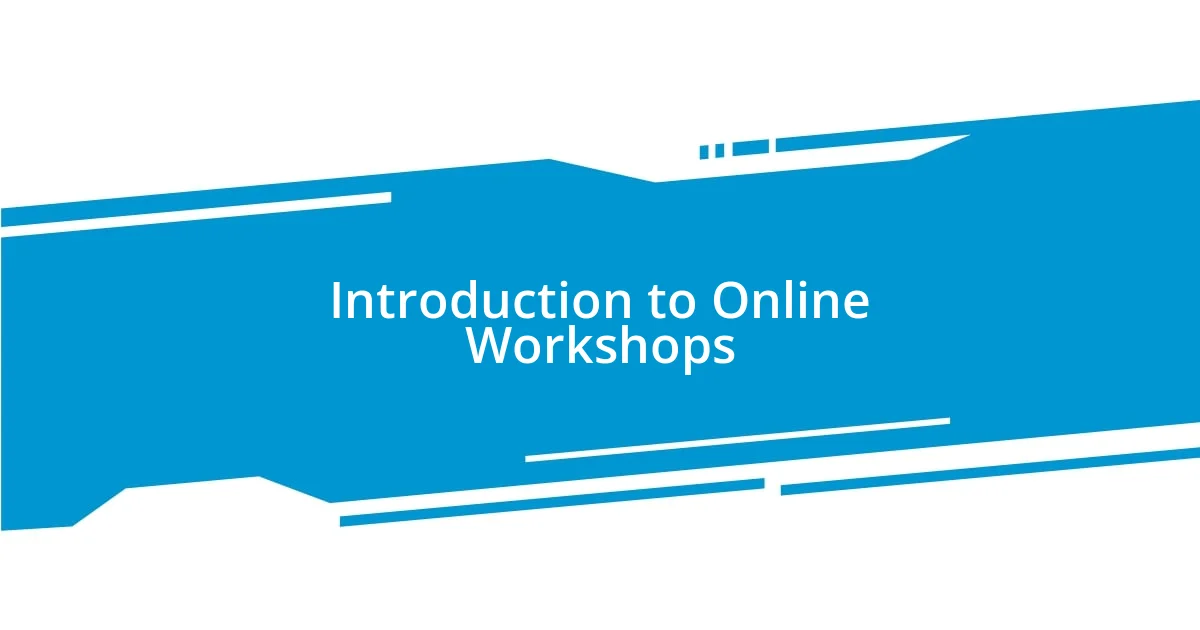
Introduction to Online Workshops
Online workshops have revolutionized the way we learn and connect. I still remember my first experience with one; I joined an art workshop from the comfort of my living room. The sense of community I felt, despite being miles apart from others, was surprising and inspiring.
As I navigated the digital space filled with like-minded individuals, a question came to mind: How can virtual environments foster such genuine connections? Reflecting on it, I’ve realized that the interactive elements—like chat features and breakout rooms—play a crucial role in cultivating engagement and deeper discussions.
In essence, online workshops blend flexibility with rich content while breaking geographical barriers. The thrill of learning something new alongside others who share your passion can be even more electrifying, even when it’s through a screen. It’s fascinating how technology opens new doors to experiences that once felt unattainable.
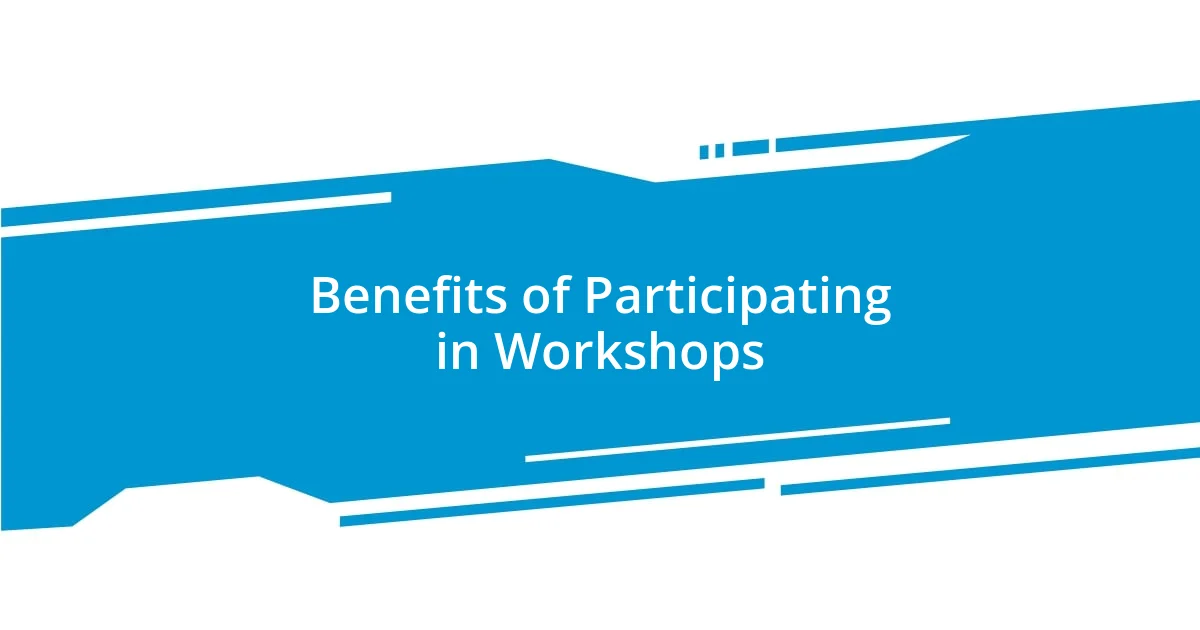
Benefits of Participating in Workshops
Participating in workshops offers a unique opportunity to enhance your skills and knowledge in a supportive environment. I recall a digital marketing workshop where I learned not just about strategies but also connected with professionals navigating similar career paths. This interaction created a network that I still rely on today—proof that these gatherings can yield lifelong benefits beyond the immediate learning experience.
Emotional engagement is another pivotal benefit. During a recent creative writing workshop, listening to others share their stories stirred something deep within me, reigniting my passion for writing. I realized that hearing diverse perspectives not only broadens one’s understanding but also cultivates empathy—vital in any collaborative space.
Lastly, the convenience of online workshops cannot be overstated. I remember juggling my work schedule while participating in a series of coding classes. The flexibility allowed me to learn at my own pace, making it less stressful and far more enjoyable. After all, who doesn’t want to blend learning with life’s other commitments seamlessly?
| Benefit | Description |
|---|---|
| Skill Enhancement | Workshops provide targeted training, allowing participants to develop specific skills and knowledge relevant to their interests. |
| Community & Networking | Engaging with peers creates valuable connections and a supportive network for future endeavors. |
| Emotional Engagement | Sharing experiences fosters empathy and emotional growth, enriching the learning environment. |
| Flexibility | Online formats offer the freedom to learn at one’s own pace, integrating seamlessly with personal and professional commitments. |
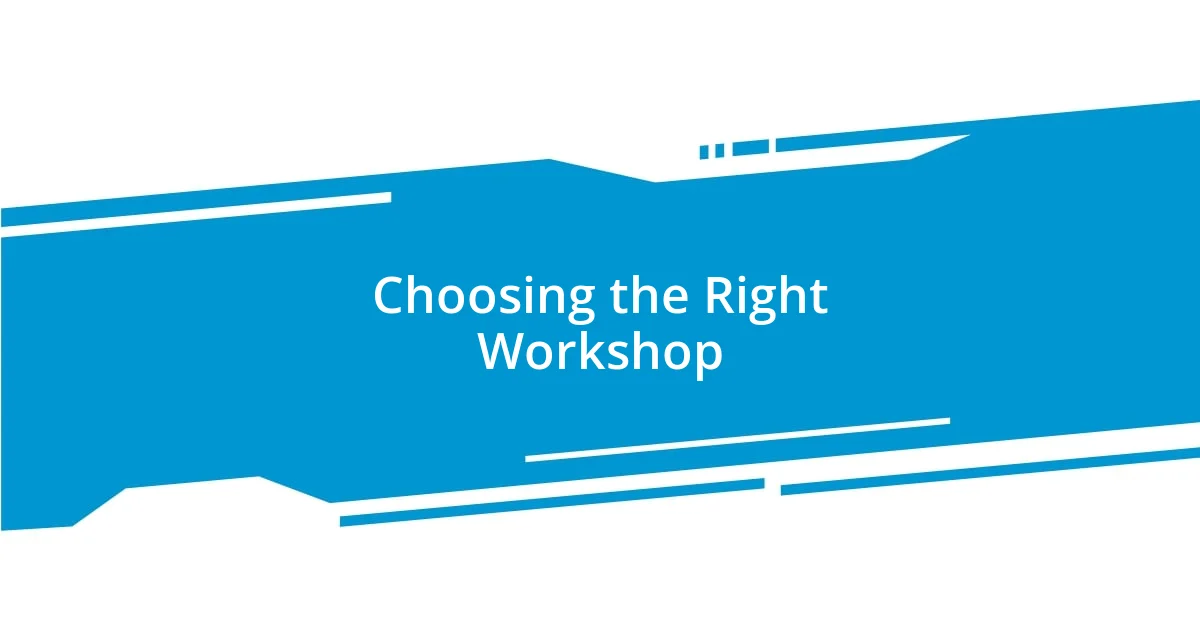
Choosing the Right Workshop
Choosing the right online workshop can feel overwhelming, given the variety of options available. Personally, I once spent hours scrolling through listings, trying to find one that resonated with my interests and goals. It’s essential to think about what you hope to achieve—whether it’s mastering a new skill or simply exploring a passion. Clarity about your objectives can make the selection process much more manageable.
Here are some factors to consider when choosing a workshop:
– Personal Goals: Reflect on what you want to achieve—both short and long term.
– Instructor Credentials: Look for experienced instructors and read reviews to gauge their teaching style.
– Participant Engagement: Assess how interactive the workshop is; a lively environment often enhances the learning experience.
– Topics Covered: Ensure the workshop delves into areas that excite you personally.
– Duration and Format: Be mindful of time commitments and whether the schedule fits your lifestyle.
Once, I hesitated between two photography workshops, torn between improving my skills and exploring a niche interest in travel photography. I ultimately chose the one that aligned seamlessly with my love for travel experiences and left me both challenged and excited. It’s these personal connections and interests that often lead to the most fulfilling workshop experiences.
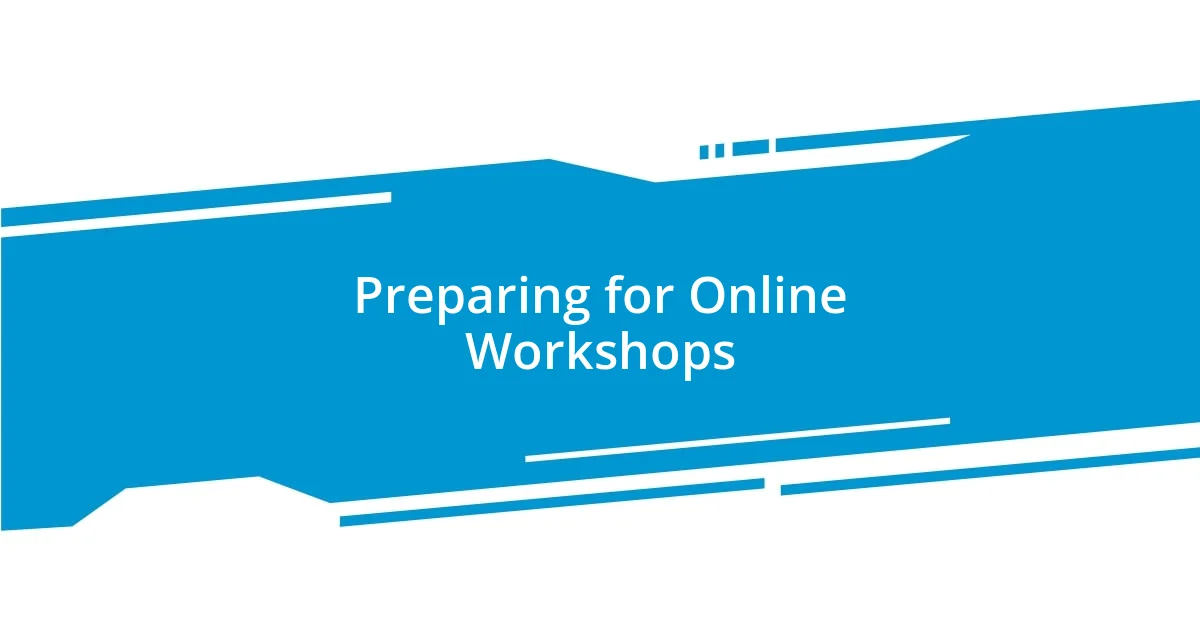
Preparing for Online Workshops
Preparing for online workshops involves not only the technical setup but also a personal mindset shift. I remember the first workshop I joined—I was excited but also a bit anxious. To get myself in the right frame of mind, I set up a dedicated workspace, free from distractions. This simple act helped me feel more present, allowing me to engage fully with both the content and the participants. Have you considered how your environment might influence your focus during a session?
Aside from creating a suitable space, I’ve found that pre-workshop preparation can significantly enhance the learning experience. Before attending a public speaking workshop, I took some time to list my fears and what I hoped to improve. Writing it down not only coaxed out my insecurities but also set a clear goal for the session. Did you know that articulating your objectives beforehand can transform your participation? It makes the experience feel more purposeful, don’t you think?
Lastly, I find it beneficial to gather relevant materials in advance. Before a recent graphic design workshop, I curated some examples of artwork I admired. This preparation helped me contribute meaningfully to discussions and get feedback on work that truly inspired me. Engaging with the content beforehand allows you to dive deeper into conversations and share insights, which is often where the magic happens in collaborative spaces. What materials or resources could you gather that might enrich your own workshop experience?
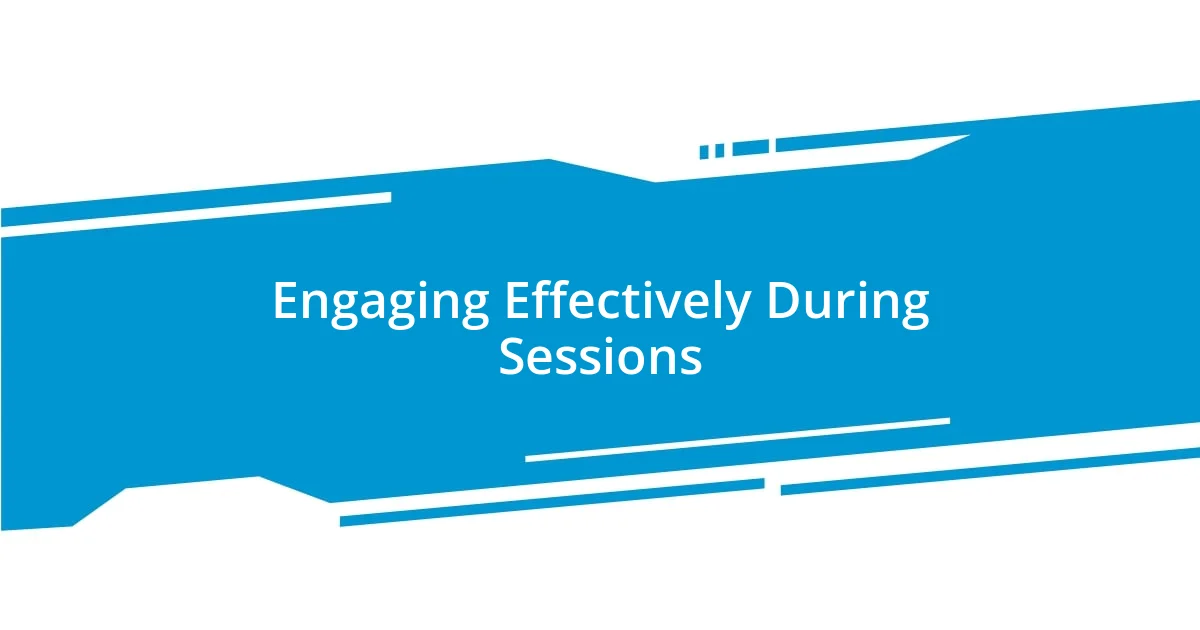
Engaging Effectively During Sessions
Engaging effectively during online workshops often hinges on active participation. I remember one session where the instructor posed a thought-provoking question, and instead of holding back, I decided to share my perspective on the topic. That moment of vulnerability not only sparked a lively discussion but also encouraged others to open up. Have you ever noticed how sharing your thoughts can create a ripple effect, inviting others to join the conversation?
As the sessions progress, I find that using chat features can be incredibly effective. In one workshop, I started contributing not just my thoughts but also resources that I felt would benefit my peers. Seeing the instructor highlight my contributions felt rewarding and reinforced my engagement. It’s amazing how a few typed words can foster a sense of community, isn’t it? I believe that these interactions help transform a simple session into a collaborative learning environment.
Another strategy I find useful is to ask questions as they arise. There was a graphic design workshop where I felt a particular concept was skimming over my head. Instead of staying silent, I raised my hand and asked for clarification. Not only did it help me, but others voiced their similar struggles too! Engaging others through questions creates a space where everyone learns together. It’s these shared experiences that make online workshops feel less like solitary learning and more like a journey we’re all embarking on collectively.
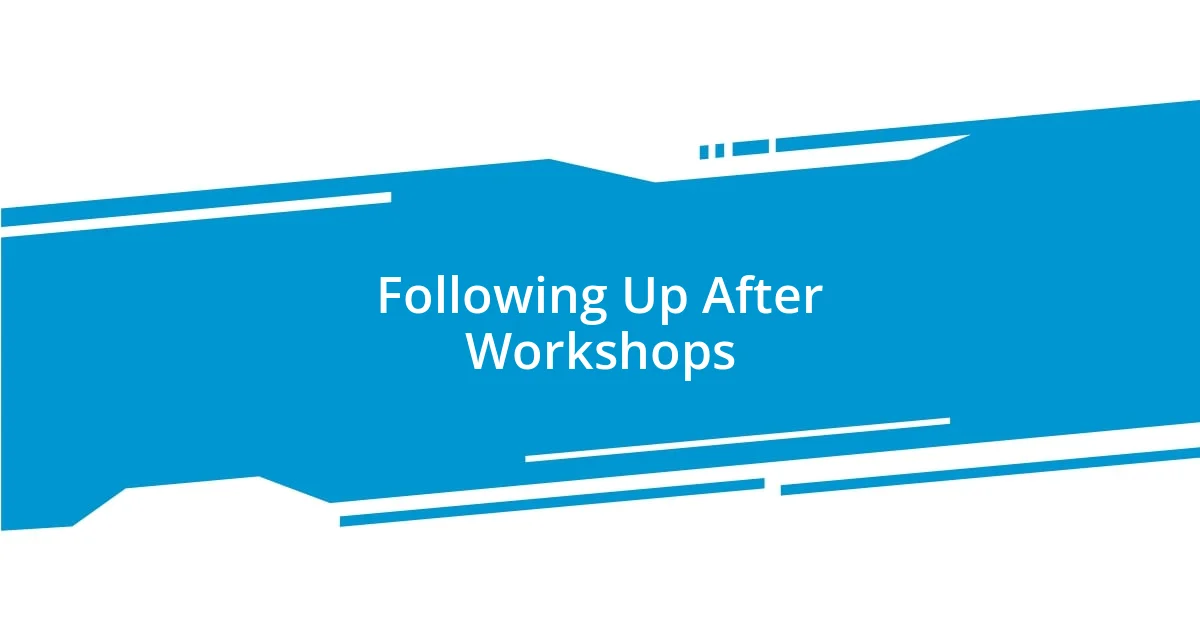
Following Up After Workshops
Following up after workshops is essential for solidifying what you’ve learned and fostering connections. After a particularly intense workshop on leadership skills, I took a moment to reflect on my key takeaways. I jotted down notes and crafted a short thank-you email to the facilitator. This simple gesture not only expressed my gratitude but also reinforced the concepts we discussed. Have you ever considered how a follow-up can transform a fleeting interaction into a lasting connection?
I often find it beneficial to reach out to fellow participants after a workshop. For instance, I connected with someone who shared similar interests after a digital marketing session. We decided to exchange resources and insights, which significantly deepened my understanding and provided additional perspectives on what we learned. Don’t you think that collaborating with peers can enhance our learning experience exponentially?
Moreover, I’ve started to implement action plans based on what I learned. After a workshop on time management, I created a personalized schedule to apply various techniques discussed. Revisiting those notes and tracking my progress held me accountable while also allowing me to celebrate small successes. How have you seen follow-up strategies boost your commitment to applying new skills? Each small step forward keeps the momentum alive, making the workshop experience feel truly impactful.
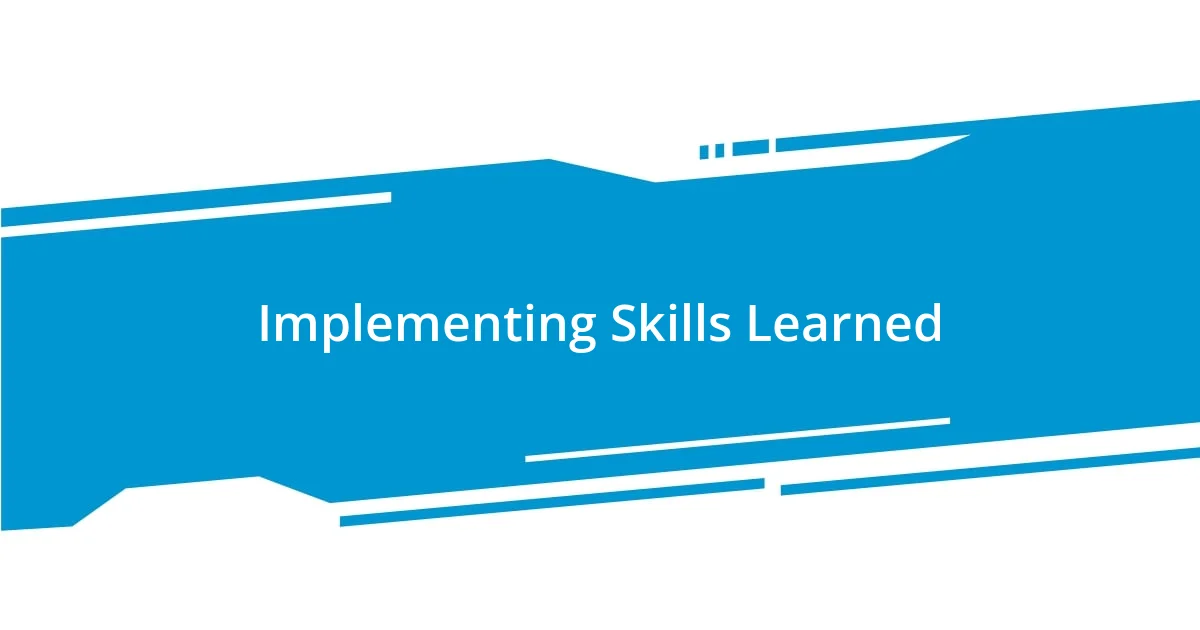
Implementing Skills Learned
Implementing the skills learned during online workshops can be a game changer for personal and professional development. I remember diving into a workshop focused on effective communication, where we practiced active listening and feedback techniques. After the session, I challenged myself to apply those skills in my daily interactions, especially during team meetings. Have you ever noticed how small changes in communication can shift the entire dynamic of a conversation? It truly made a difference for me.
I often find that immediate implementation reinforces what I’ve learned. After a recent workshop on digital tools, I created a mini project where I had to utilize the platforms discussed. The thrill of experimenting with newfound skills in real-time was exhilarating! It felt like stepping off a ledge and trusting I could fly. This hands-on approach not only solidified my understanding but also boosted my confidence in using those tools creatively. Isn’t it rewarding when you can look back and see tangible results from what you’ve learned?
Furthermore, I’ve realized the importance of reflecting on these experiences. After applying a skill, I take a moment to assess what worked and what didn’t. During my time crafting presentations after a storytelling workshop, I used to jot down my thoughts on my successes and challenges. This reflection has become a vital part of my learning journey. Do you reflect on your experiences? I find it’s the key to evolving beyond the workshop setting and truly integrating skills into my life. Each implementation and review guides me to become a more effective learner.



